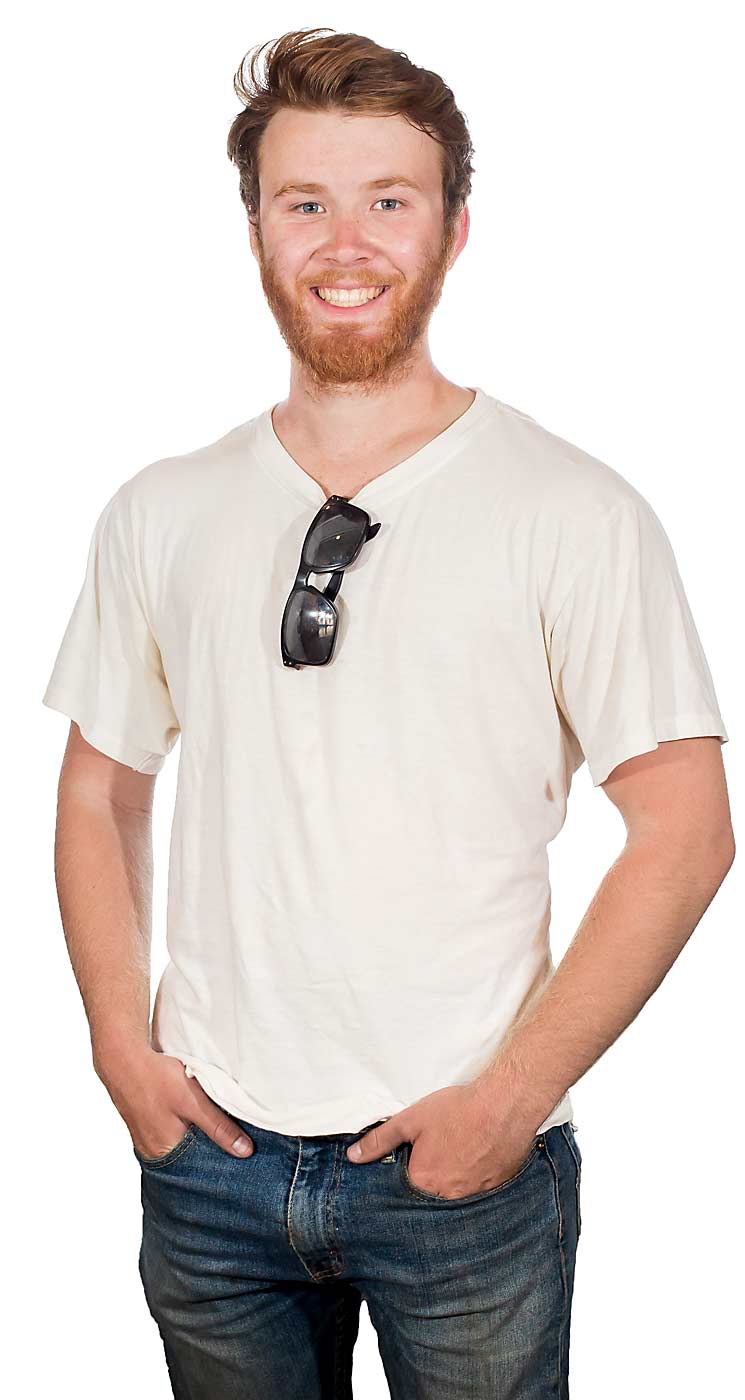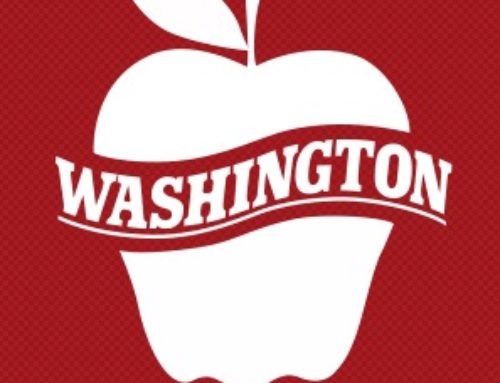family background / Roland will be graduating from University of British Columbia with a degree in horticulture and hopes to pursue his graduate degree in plant genetics. He currently works for the family farm, H&S, and worked with the sterile codling moth insect release program in British Columbia. Roland is the son of Darcel and Hank Markgraf and has a twin brother, Nicholas.
age / 22
crops / Apples
business / H&S Productions
 How did you get your start?
How did you get your start?
My first job on the farm was thinning at about 14 years old. I remember we had a bunch of older kids working, and mom thought it would be good to get me out with them.
She thought it would be good to teach me how to be productive. I made it two days thinning before she fired me because my brother and I were fighting nonstop and I couldn’t stay focused.
I was too young to start in the field. When I matured, I remember dad teaching how to drive tractor and doing little jobs.
It was just a slow process toward more important jobs — I’d be on the tractor mowing the orchard, pruning, mulching, thinning, picking, fix irrigation, just the basic everyday orchard work.
What attracted you to farming?
I love being outside and having the space. I loved growing up looking out from my second-story bedroom window over the orchard.
As a family, we own this. This is ours and we can do what we want with it to provide for the family and others.
How has college helped you?
Learning about plants in a more detailed way helps me make connections with what I’ve learned out in the orchard.
I understand what’s going on better. I think it’s important to learn how trees actually grow if you’re going to be doing orchard work.
One of the things I’m currently taking in college is microbiology and learning about genetics. I think genetic research is going to be huge for the apple industry.
I expect it to revolutionize how we can grow and produce. It’s really exciting to see what will happen in the next five to 10 years.
What farm lessons continue to resonate?
One of the most important things I’ve learned so far is not to put things off. If something needs to be done, simply go and do it.
Spend the money if necessary — you can’t be cheap — and do it right the first time. Also look to improve efficiencies in the orchard. When you make improvements, if it’s not done right and you end up having to fix it in a month or year’s time, that just causes unnecessary problems.
What challenges do you face at your farm?
One of the problems that we have is with the soils being too rocky. We’ll plant trees and a third of them won’t grow or they’ll take longer to mature because they aren’t getting the nutrients they need.
One of the challenges at our farm is when the rocks shift around, sometimes breaking irrigation pipes. We’ve had blocks that grow great and others that don’t grow well at all.
What’s your advice to young growers?
If you want to go into agriculture and it’s something you want to do with your life, try to pursue some type of education.
It’s pretty likely that if you get an ag degree, you’ll only end up using half the things you learn, which isn’t bad, because having a well-rounded ag education will shape the way you think and work through problems. A big part of working in ag is dealing with problems.
An ag degree will help you make better choices and help you decide what is right or not. For some, continuing your education may sound like a chore, but it does change you. I find that I’m looking more in-depth with how we do things at the farm and if it’s the best way possible.
Don’t ever look at a task or method and think it’s the best way possible. Always ask yourself: Is this what I should be doing, or is this how I should be working at it?
I think you should do this with everything you do. Remember to set yourself up for success in the future and you’ll be happy in the long run.
– by TJ Mullinax






Leave A Comment